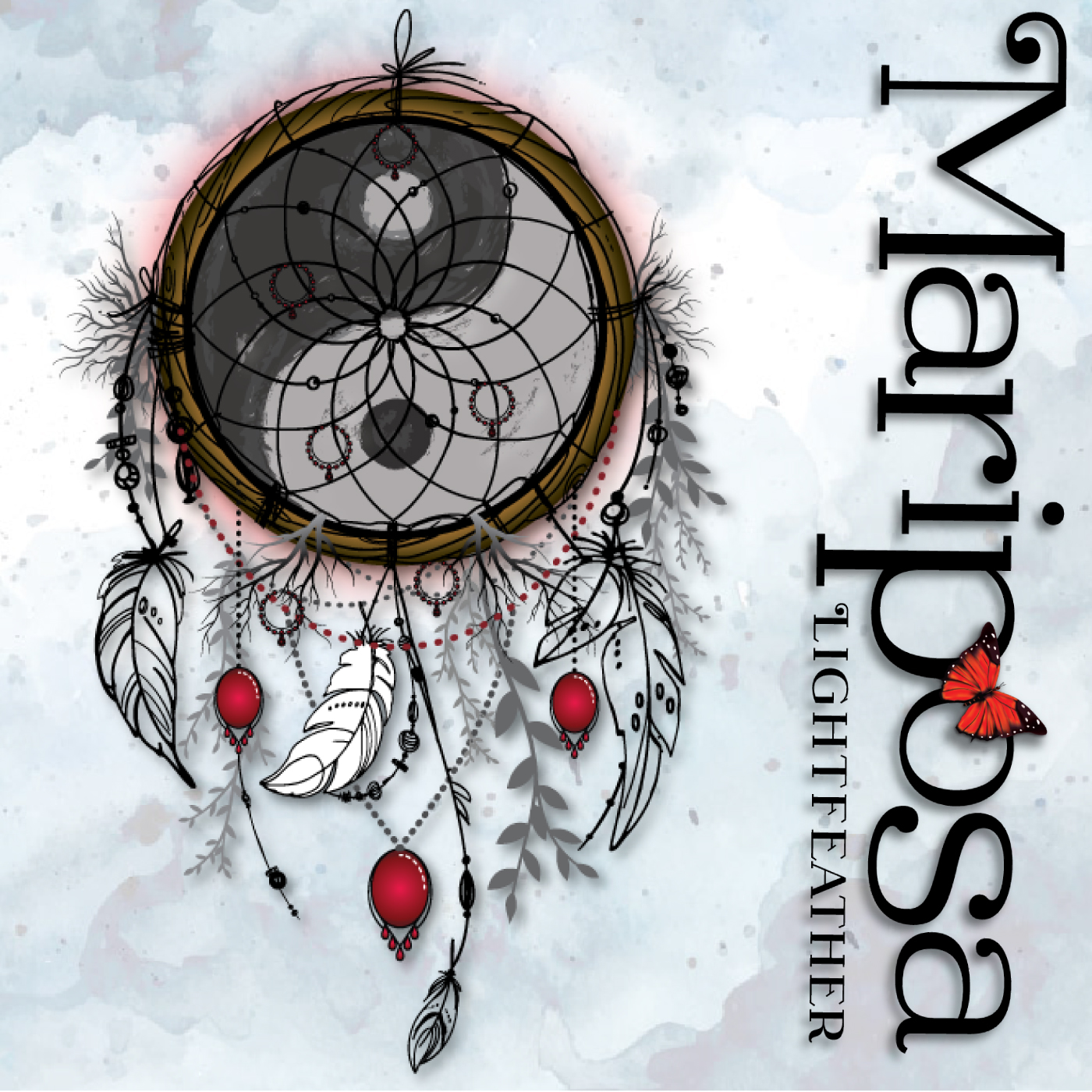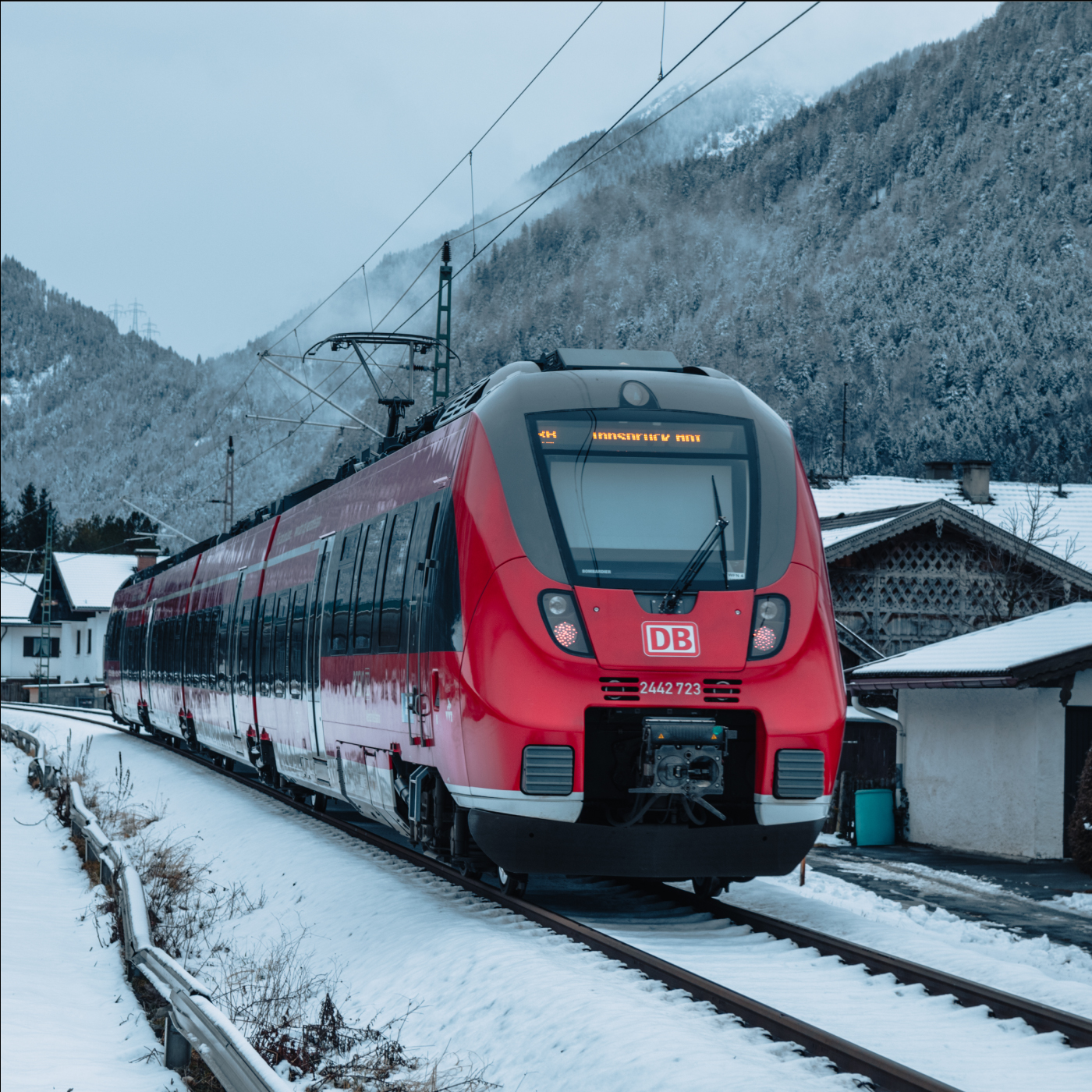This one is about my father, Robert Lightfeather, who is 18 years old at the time and the time is 1985. The place, West Germany, which was apparently a country back then.
It was the middle of July in Texas, and the family station wagon didn’t have air conditioning. As long as Robert could roll down the windows in the backseat, it wasn’t so bad. But through the vast stretches of dry vegetation, George Lightfeather, his all-powerful father and driver, yelled at him to roll up the windows. Yes, suffocating to death in the blistering backseat was better than a little dust on the fake leather. They had to stop for gas in Abilene, which meant George grumbled about gas prices for the last half of the trip to the airport.
George said driving to the airport was a waste of money and time, and if it wasn’t for Megan, his new wife, he would have put Robert on a Greyhound bus.
“At least there’s air conditioning,” Robert said.
“You think this is easy? You think we like this drive? This is for you. We’re doing this for you. Spoiled little brat,” George said.
“Your dad’s just upset because you’re leaving,” Megan said, turning around from the passenger seat with a desperate smile on her face.
“Okay,” Robert said and looked out the closed window.
“We’re so early, and it’s so hot in here. George, let’s stop for a burger,” Megan said.
“Do you know how much I paid for his ticket? I expect him to be fed steaks and caviar,” George said.
Yes, what a waste of resources his son was.
They didn’t stop. It wasn’t George’s style to take unnecessary stops. Drop the boy off as quickly and as early as possible, and THEN to the business of eating lunch and getting home. And drop him off they did – curbside at Dallas Fort Worth International.
“George, let’s go in with him,” his stepmother said.
“Do you know how much parking costs?” his father said.
“Oh, c’mon. We’re not gonna see him for a long time.”
“We can see him right here. This is fine, right?” his father said giving Robert a quick nod.
Robert had never been to an airport, let alone been on an airplane. He had never even seen the waters of an ocean. And now, his father was whipping his luggage out of the trunk of the car at the international gate, where only seasoned travelers were being dropped off. Even they looked overwhelmed entering DFW, a structure bigger than the island of Manhattan.
“You’re all set,” his father said.
“Ohhhhhhh. I’m gonna miss you honey,” his stepmother said, throwing her arms around him.
She was only 25, but it didn’t seem ironic when she acted motherly. Some people were born to nurture and ohhhhh at the world. Maybe it would have been different with his dad, if she was his mother.
A man with a reflector vest came over to hurry them, but upon catching the scene, moved on. With just one glance, he knew this deserved more than a curbside handshake, which is what Robert got from his father.
“Give us a call when you get there,” his stepmother said as they drove away.
There is a fine line between 17 and 18, between child and adult. When Robert entered DFW through its sliding glass doors, he was a child, an abandoned child, lost and afraid. He got on the airplane, the first of four in his epic 36-hour journey that would touch three continents. By the time he landed in Munich, he was a man and a world traveler, the weariness having initiated him to both by swallowing the terror of being all alone in the world.
The Munich airport was like a Texas mall in comparison to the Dallas one. It didn’t take long for him to retrieve his bags and find a cozy nook where he can stretch his legs and wait for his mother. He’d been playing a game all his life called How-Long-A-Wait. He guessed two hours for this one. All waiting is miserable, of course, but the degree of misery is not dependent on the length of time. It’s purely dependent on location. The absolute worst place to wait is the fabric store. Sarah Watkins, his mother, could easily spend a sunny afternoon touching silks and satins, dreaming of a different life. The laws prevented the stores from clearly posting the understood rule that children were not welcome, which meant Sarah could bring him in but that he wouldn’t be treated so well. No matter how he tried to sit still in the corner, the blue-haired ladies who ruled the fabric store found a way to chastise him. “Don’t touch that.” “Get out of the Aisle.” “Don’t look at people.”
The absolute best place to wait was grandma and grandpa’s farm in Central Kansas. Once, when Sarah was late, grandma made him chicken and noodles for dinner and for dessert, chocolate cake from scratch with a buttercream frosting. When they were alive, they loved him, and had cable TV. He didn’t care if his mother never came to get him, but she always did, sometimes days late.
A close second best place to wait was at the Munich airport. Everywhere he looked, there was something interesting. Doors, signs and even people were a different size than in Midland. There were people from all over the world, and no matter the color, they were fascinating to watch. And with his set of matching luggage, he looked like he was born to sit at the airport. The plaid set of 2 trunks were cheap but brand new, a graduation gift from his father – a nice but firm way of saying get out.
A couple of months before the luggage, Robert overheard his father screaming into the phone. “Hell, Sarah, I’ve been taking care of them for three years already. It was supposed to be a few months.” “Well, that’s not my problem.” “We can’t have him around a pregnant woman.” “Besides, we got Maggie. She’s a good kid, and he’s not a good influence.”
Robert didn’t know exactly what he was going to do with his life, but it was certain he wouldn’t do much. In his father’s house, it was wrong to think about yourself – your needs, and certainly your wants. He wanted to apply to colleges, but he’d have to do it in secret since George thought college was for spoiled rich kids who didn’t have to work. So, he waited for Sarah and George, a 6 foot 7 full-blooded Chippewa, to settle their heated Transatlantic talks, a high-stakes negotiation where the loser takes the son that ruined their lives.
Fortunately for Robert, Sarah lost, and now he was people-watching in Germany, which beats anything that could happen in Texas. It was nearing two hours, and he started to feel anxious. He had grown over a foot since he had last seen her, but he still didn’t feel strong enough to confront the tiny woman with the great powers of devastation of children’s lives.
Two hours and 30 minutes. Off by 30. Not great, but not a bad game of How-Long-A-Wait, considering it was the first time he played in three year. He saw her as soon as she walked in, turned his head in that direction at the exact moment. It was like he had a tracker implanted deep in his psyche, which had been reactivated by her proximity. Sarah looked happier than Robert had ever seen her. The single, childless life suited her. On some level, he didn’t blame her for abandoning him, but he could never forgive her for abandoning Maggie, his little sister, who had been in a deep depression the whole time in Texas, which George mistook for goodness because she stayed in her room and didn’t make a sound - the perfect traits of an unwanted child.
When Sarah finally saw Robert, she immediately broke out into a sob and ran to him, holding on to him as if he was her favorite doll, once lost and now found. It was starting already. She produced an avalanche of emotions wherever she went, and with her touch, he felt all of them coursing through his veins. She was definitely supervillain material. He felt a little guilty at first that she had to take him, although she was not legally bound to do so, as she repeated. But now, anger set in. She owed him so much, and at the very least this – An opportunity for a life outside of Texas.
But on the drive to Garmisch Partenkirchen, a foreboding sense of regret settled through his body. Wasn’t he a man now? Couldn’t he have just left Texas by himself - got the cash for the plane ticket and luggage so he could go to California or Colorado and get his own place. Why did he let his parents make decisions for him? They had only made bad decisions in their own lives. They were complete losers, who had never succeeded at anything. And, they were assholes. He was an adult. It was up to him to make decisions for his own life. Maybe he would bring it up to her, see if he can’t get a ticket back. Isn’t that what she wanted, too?
But first, he had to survive the death ride up the Bavarian Alps. On the best of roads, Sarah drove like a blind frat boy on coke. And through the sharp curves of a mountain, she was downright dangerous. He thought maybe it was time for a new game – How-Long-Til-Death? He guessed 25 minutes. He remained silent as not to distract her, but SHE wasn’t silent. From Munich to Garmisch, she talked non-stop about her trip to the airport, which involved getting lost, first through Switzerland and then Italy, where she filled up at a gas station, and because she didn’t have cash with her, they siphoned it back out. She had to call a friend to bail her out. Robert spoke fluent Sarah. She had a boyfriend. Great. Yet another asshole in the mix.
They didn’t veer off the mountain, which would have solved his problems. He wasn’t sure if he preferred life or a respectable showing in the inaugural game of How-Long-Til-Death. Well, it was a new game. Maybe he’ll get better.
They say Garmisch is the most beautiful of the US army bases. What they should say is that Garmisch is the most beautiful place on earth, too beautiful to be real. After two days of world travel and 1 hour in Sarah’s car, he was a bit delirious from exhaustion, but Robert was sure he was standing inside of an oil painting, the kind with clumps of paint dried in swirls. He thought for a moment that he had won How-Long-Til-Death, but he looked all around and there were no fabric stores in sight.
With one breath of the Alpine air, he forgot all about going home and starting a new life. It was just as well. An 18-year-old starting a new life without money, the support of his parents or a car was untenable anywhere, inside or outside Texas. Before he was allowed to sleep that night, his mother had a speech for him.
“Listen, Robert. You’re on an army base now. They’re really strict about pot. They won’t hesitate to put you in to military prison. I’ve seen it.”
“Why do you automatically assume I’m gonna smoke pot?”
“Because… Remember? In Kanas? And in Texas? And then again in Texas?”
“That was a long time ago. I don’t even really get high anymore.”
“Honey, that was when you were underaged. Your record doesn’t follow you. Look at this as a fresh start.”
“See, you don’t even believe me.”
“Listen to me. Don’t smoke pot here, and no matter what, don’t buy drugs in Amsterdam and bring it back.”
“You can buy drugs in Amsterdam?”
“Yeah, but it’s not legal anywhere else, and if you bring it into Germany, you’re smuggling. You’ll be put in a real German prison, probably for the rest of your life.”
“That’s so stupid. So, it’s legal in one part of Europe but in another part, I go to jail for the rest of my life? Whatever.”
“Just don’t do it. Say it back to me. I will not bring drugs back from Amsterdam.”
“Okay, mom. I will not bring drugs back from Amsterdam.”
Sarah had just made the cardinal mistake of affirmations – the negative words like NOT are ignored by the brain. Also, she had just confirmed the rumors he heard back in Texas that in Amsterdam, drugs were legal. You can buy pot and hash along with a cup of coffee in any cafe. It had only been a few hours in Germany, and already, he had a clear directive - find a way to Amsterdam, wherever that was. It didn’t take long for him to get a job. Despite his mother’s warnings, all the young people he met smoked plenty of pot. They were mostly leftover Army brats, enrolled in the American college, living off base. These kids were everywhere in Garmisch, and just like Robert, there was no mistaking their American-ness. They recognized him immediately as one of them. On his first day, Wes came right up to him and asked him if he got high. Uh, yeah. It was Wes that got him a job, at a Schnitzel restaurant where the owner knew enough English profanity to employ Robert, who he looked up and down like a piece of garbage not quite ready for the trash.
Wes also found him a place to live. Well, it was where Wes and 9 other boys lived, a narrow house with a tall, steep roof that looked like a gigantic rundown birdhouse. Inside smelled like a concoction of stale bong water, stale cigarettes and a fresh joint. They kept a cooler full of Budweiser from the PX. These were impossible to get anywhere else in Germany since the Germans only cared about the quality of the beer.
Robert took an empty bed in the attic. It was an easy home. Even before he met any of the other boys, he knew he belonged there, that he was wanted. For what? It didn’t matter. Some of them had jobs stocking the shelves at the PX part-time but mostly, they were full-time barely passing students, waiting for their parental subsidies each month. Some of them had been in Germany for years but spoke not one word. Robert, on the other hand, had to work in a German kitchen as an apprentice dishwasher. His direct supervisor, Karl, the master dishwasher, took his lifelong career as seriously as any heart surgeon. When he saw Robert did not share in this enthusiasm, he took it as a personal failure and vowed to whip Robert into shape.
Karl wanted Robert to come in an hour before the restaurant opened for lunch, to make sure every dish and fork was polished, which seemed to be overkill since everything had been polished just the night before. But there were good things about the job, too. He did have to communicate in German with a German about German things, and within a couple of months, he was more fluent than most of his housemates, who spent their time on the base, which was more like a town in America than any town in America actually was. The other good thing about the job was the lunch break. It was longer than you would think people who double polish their silverware would take, but lunch was a serious part of the job. They sat on long benches in the empty restaurant, chowed down on Schnitzel and potatoes, and gulped down bottles of beer. Sure, one beer would have sufficed, but the whole kitchen staff got shit-faced on cheap beer out of the vending machine, which was still in a much higher class than the crap you stole from a Texas refrigerator.
It was hard to labor for so many hours during the day and then join the party at home, which was going on at all times. Pot and hash were staples, which was good since Robert had not gone more than a couple of days without it since he was 13. Sometimes, on his days off, they’d take acid and get on a train to the Englischer Garten in Munich. Even on acid, they were the most normal people at that park, known at that time for being full of drug dealers and impatient heroin addicts that spent their high on the grassy hills. Sometimes, they scored drugs there, which was an artform Robert never could get the hang of. First, you had to identify the dealers, who were usually Black, Wes explained. But you had to be careful since the police often used black officers to trap buyers. “How can you tell the difference?” Robert said. “I don’t know, man. You can just tell by the way they walk. Cops walk like they do on base.” The idea of accidentally buying illegal drugs from a German cop was terrifying, and Robert never once tried. As you’ll see, that experience would have come in handy. But it seemed hardly worth the risk since the pot you got there was some of the worst available in the world, both in original quality and the length of time since it peaked.
Germany. Good beer. Bad pot. That was the state of things, and it was just fine with Robert. If it wasn’t for the job, it was quite close to the life of his dreams. The other housemates, however, having had nicer lives didn’t appreciate their situation. Their primary complaint was the quality of the pot. They wanted to go to Amsterdam and get the good hash, but they weren’t allowed to go to countries where drugs were legal. Their college, which will remain nameless, was affiliated with the American government. They hated for its students to have any form of fun, but they really hated drugs, especially at that time when America was waging a war against it.
The trouble began when his housemates convinced him to quit his job before Oktoberfest. They argued that it was criminal to work during the sacred festival. To pay for the two-week festival and to cover Robert’s expenses, John Dillard came up with a con for his parents.
“Mom, there’s a trip to Buckingham Palace. Not everyone can go cause it’s pretty expensive, but it’d be really awesome. We get to take a tour. Oh, and also we get to go to Scotland Yards. Uh-huh. Oh, uh-huh. It’s a thousand US for everything. Yeah, it includes room and food… Uh. I don’t know. I think it’s a hostel in London, yeah, like you stay with several people in a room.”
It was going well. He was giving a thumbs up while the house watched him work his parents. Already the previously agreed upon price tag of 500 dollars had doubled and when he got off the phone, he told them he had secured two thousand dollars, you know, so he can travel around the UK. They were ready for the party of their lives, a party with millions of people from all over the world.
Munich is the epicenter of Oktoberfest and a short train ride got them there. They were drunk on beer all day the first day but you had to wake up pretty early, like noon, to get a seat in a good tent. Besides, you couldn’t get high anywhere near the international crowd. So, the Lizard boys, as they called themselves, had an Oktoberfest of their own with the Englisher Garten pot and Budweisers. Robert had the time of his life. And when they were done, they had barely spent 200 of the 2000 they embezzled from the Dillard’s.
The facts were this: they had 1800 dollars; one poor young man from Texas who wanted more than anything to go to Amsterdam; and 10 young men, who couldn’t go to Amsterdam but wanted more than anything to get Amsterdam drugs. There was no other way this could end.
“Dude, take all of it. Just go hang out for a few days. And then on the way out, buy like 1500 dollars worth. That’s probably a kilo or something. That’d last us forever.”
Of course, none of them had any idea what a kilo looked like or how long that would last. Robert knew the whole thing was a bad idea, even if his mother hadn’t warned him of the very thing. But he wanted to. He wanted to travel. He wanted to see something on his own with some money in his pocket. He wanted to forget all about where he came from in a place where he didn’t know anyone.
There were no direct trains from Garmisch to Amsterdam so he had to switch in Munich. Luckily, all the trains were at the same station so no other travel was required. That was good because he was carrying Wes’s hiking backpack, which was tall and heavy. It was the Lizards’ idea to pack heavy to give him the wholesome young American look, which Robert wasn’t exactly pulling off thanks to his Chippewa blood. They said goodbye at the Munich station near Englisher Garten. He tried not to think about what was going to happen and concentrate on seeing Amsterdam. None of them had pieced together an obvious truth. He was committing an international crime, and being weighed down by a gigantic backpack, preventing him from physically running away, well, that’s probably not so smart. But in their defense, THEY weren’t so smart.
Amsterdam didn’t disappoint. It didn’t look like any place he had ever seen before. Everywhere he looked, there was river. Small cruise ships filled with tourists lazily drifted up the wide waterway. Small boats docked on the street-sized canals. There was a diverse crowd on the sidewalks and bikes everywhere. The buildings were tall and narrow, all crammed together, in a striking opposition to Texas, where people would rather die than have their house touch their neighbors’.
He was so mesmerized by the scene that he forgot all about why he was there. He even forgot about visiting a cafe, which until he got there, was all he could think about. Sitting on a bench on a bridge, he thought he had finally got what he wanted – a complete escape. Of course, Texas or Kansas or the fabric store can live in your mind, and from that, there is no escape. He was sitting in a Dutch picture book, but somehow, he could think only of his family - his sister, who was barely alive in her room in Texas; his father, who looked like he could kill a man with one hand while eating steak with the other, and his mother, who searched for happiness all over the world, who was still searching for happiness all over the world.
It occurred to him that he and his mother weren’t so different after all. He wished he could show her this bridge, this magical world, where they could both be someone different. But he hadn’t even told her where he was going. She didn’t even know what country he was in.
He got a room in one of the skinny hotels and spent the next three days walking around the city, eating french fries, fried meatballs and waffle sandwiches filled with something gooey, which were so good that he bought two at a time. He didn’t go into any of the cafes. He didn’t want to spend all his time inside, getting high. He could do that in Germany or even in Texas. All the walking around cleared his head, and he felt like himself for the first time in a long time, long before he got to Texas.
On the last day, he walked into a café called Bob Marley’s and sat down at a small table. He didn’t know any of the hashes listed or even any of the coffee drinks, but he did know it was much more expensive than he had expected. The cheapest hash was 10 guilders per gram, 10,000 guilders for a kilo. His 1500 dollars converted only to 700 guilders, which he kept in an envelope and was protecting with his life.
The waiter came over and asked Robert if there were any questions. Uh. Yeah.
“Is there a bulk discount, if I wanted to buy like 700 guilders worth, let’s say.”
“Oh, you’re American. Yes. Well, we can sell a maximum of 3 grams at a time. Oh, and you have to smoke it here. Pardon me, but a gram is more than sufficient for one person for a whole day. It’s very nice. I think you will be very pleased.”
A deep sense of relief came over Robert. He will not be able to smuggle drugs into Deustchland today, a country not known for their lenient nature. Now that it was no longer an option, the repressed fears flooded into his mind. There was the train ride, a 15-hour train ride, with multiple stops in Germany, where German men in uniform had the right to search your things. Sometimes these men bring German Shepherds, also not known for their lenient nature, who are trained to sniff out hash in the giant backpacks of stupid Americans. Robert shuddered and let out a giant sigh.
He pointed at the top of the menu where the most expensive hash was and said, “I’ll try this one.”
Turns out a gram of hash was way more than he could finish in one day, just like the waiter said. It wasn’t an issue though because as soon as it arrived at the table, a slick local named Klaus sidled into the chair next to him.
“It’s more than you thought, right?” Klaus said.
“Ha. Yeah. I’ve never had good hash before.”
“Hey, if you share some with me, I’ll tell you all about what you were asking,” Klaus said, nodding at the waiter.
Klaus looked like Robert’s age, except he was balding in the way that middle-aged men do. When he got excited, his unidentifiable accent came out. Otherwise, he spoke better English than any Texan Robert had ever smoked hash with. Of course, that bar is lower than you would expect, even if you expect very little.
Klaus told him all about hash in Amsterdam. It was very much illegal everywhere including where they were sitting, but for the most part, it was tolerated in the cafes. Selling drugs, on the other hand, will most definitely land you in jail so you had to be careful. Wink, wink.
Robert told him the whole story about his journey from Garmisch and about the 700 Guilders, which he immediately knew was a bad idea.
“If you will wait here for 30 minutes, I could bring back enough for your 700 guilders,” Klaus said.
This is one of those moments in life when everyone including yourself knows what you should do, but due to some malfunction in your brain, you just nod and agree to the wrong thing, even though the right thing is easier.
Klaus took only 15 minutes to return. He had a backpack this time, and the jovial, broke scavenger was replaced by a serious businessman, who surveyed the café when entering. Then the waiter opened the door to the back office and waved them through. He too had turned into a businessman. Robert heard his own heartbeat and willed it to slow down, but it was impossible. Klaus and the waiter barely looked at him, like they didn’t want to be identified later. Even looking right at them, Robert wasn’t sure he ever could.
Klaus took out a grey ball, about the size of a large coconut, covered in a few layers of plastic wrap. He pulled out a switchblade, unwrapped the hash and cut out a little cone. He handed it to the waiter, who rolled them a cigarette. Robert lit it and took a long drag. It was better than even the most expensive hash at Bob Marley’s that he had been smoking all day.
“It’s nice, right?” Klaus said.
Robert put the coconut in his backpack, and for the first time this trip, he was glad he had plenty of t-shirts and sweatshirts to surround the precious cargo. He took the envelope of money and handed it to Klaus, who didn’t even bother counting it. In retrospect, this was a bad sign.
Robert got on the train to Munich, put the backpack on the luggage rack and promptly passed out.




